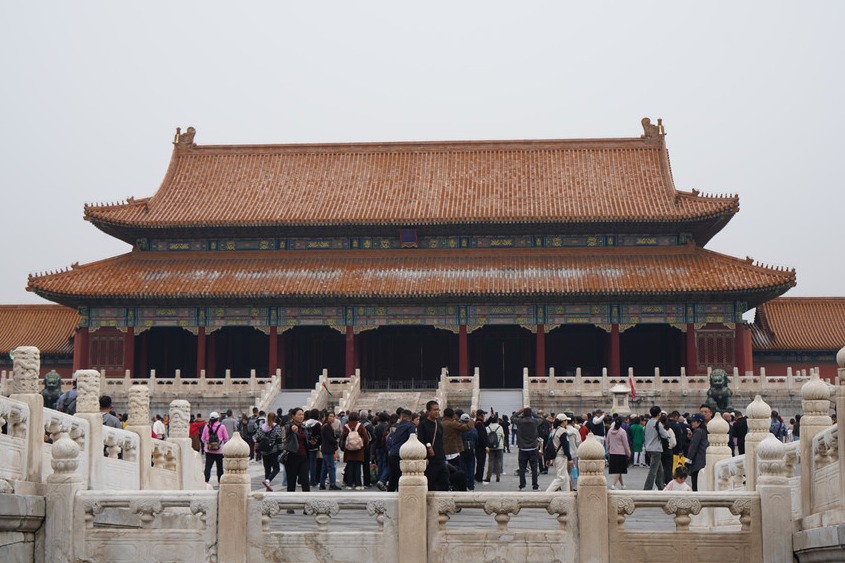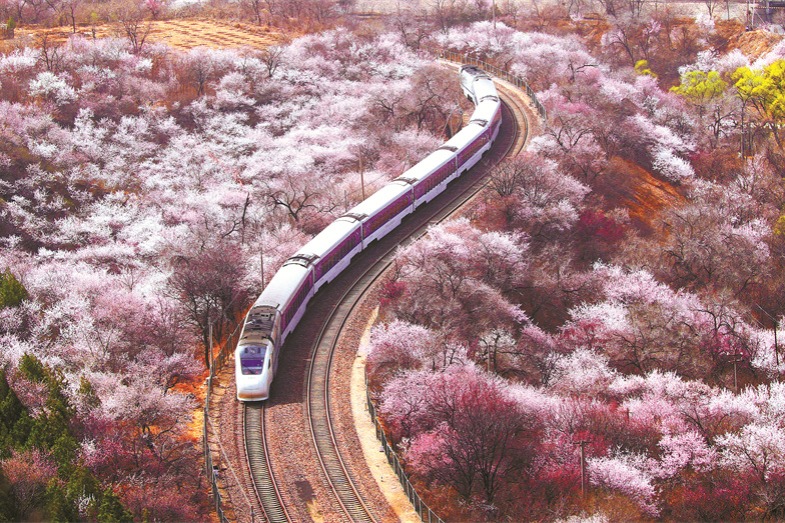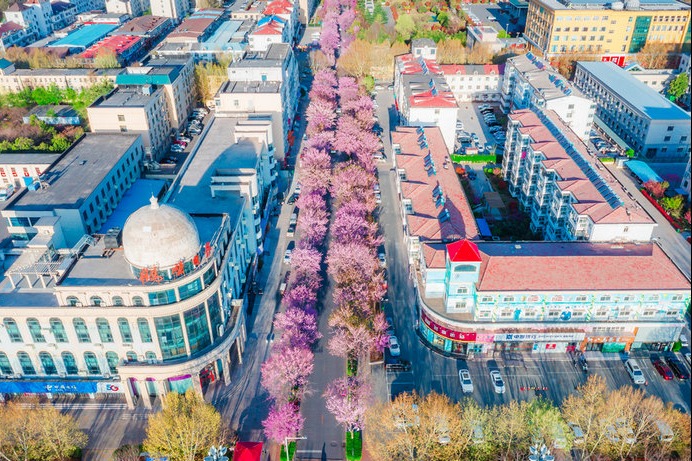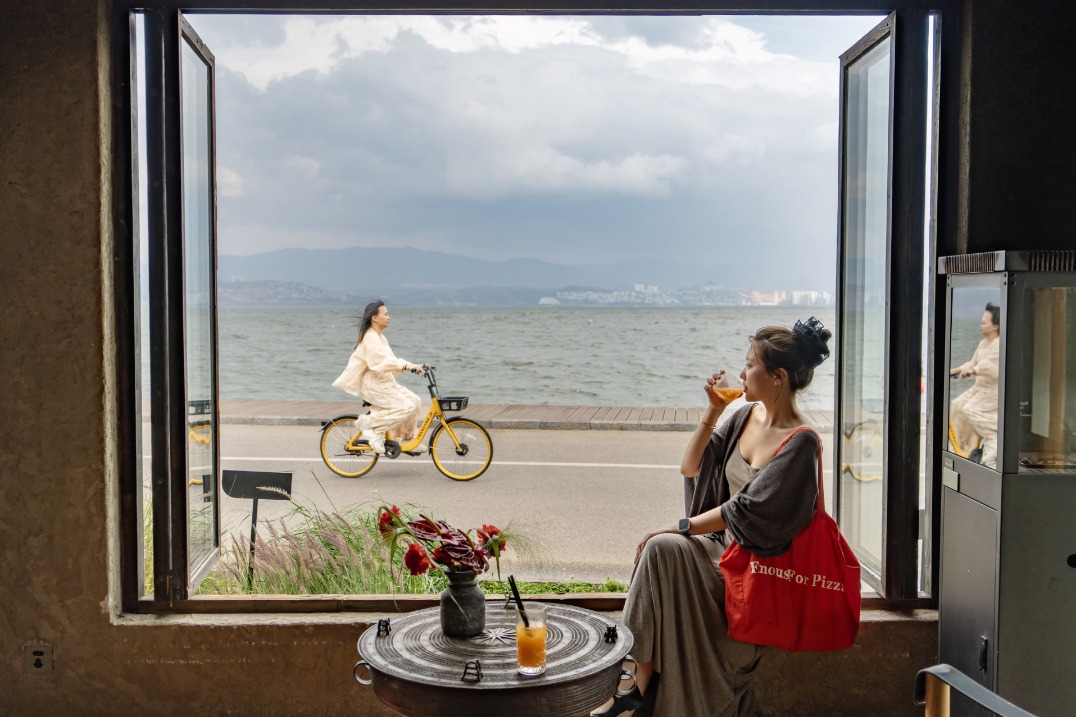'Cyber tour guide' revolutionizes travel experience

Wu Hongbo, a visitor from Dalian, recently used artificial intelligence (AI) to plan a fascinating in-depth tour of Shanxi, a province in northern China known for its splendid cultural history.
By entering his destination, travel dates, budget, and personal interests into an AI application, he quickly received a personalized week-long travel itinerary. With this detailed plan covering transportation, attractions, and accommodations, he embarked on a more convenient and efficient AI-powered journey in a province that was completely new to him.
Wu, an avid fan of martial arts novels, had long been fascinated by the Yanmen Pass -- a famed part of the Great Wall often mentioned in his favorite stories -- and was determined to visit it during his trip.
It was Wu's first visit to Shanxi, and he felt that joining a tour group would be too expensive and lack the flexibility he wanted. Faced with numerous tourist attractions and complex travel routes, he turned to AI for assistance.
The travel guide it provided included major sites such as the Yungang Grottoes, the Wooden Pagoda of Yingxian County, and his personal favorite, Yanmen Pass. Based on Wu's interest in ancient architecture and local cuisine, the AI app also recommended several lesser-known yet culturally rich attractions and local delicacies.
"This AI-planned tour has truly given me unexpected surprises," Wu said. "The recommended attractions and routes perfectly matched my taste, giving me a deeper understanding of Shanxi."
During the May Day holiday, China's tourism market saw a significant surge. The Ministry of Transport estimates that on the first day of the holiday, the number of passenger trips would exceed 340 million, marking an 8-percent increase year on year. This trend reflects a growing optimism in the tourism sector, with both domestic and outbound tourism experiencing robust growth.
As travelers seek more immersive and personalized experiences, AI's role as a "cyber tour guide" has not only enhanced the efficiency and quality of travel experiences but also introduced a new level of intelligence to trip planning.
On China's social media platforms, content such as "DeepSeek's customized five-day four-night Shandong travel plan" and "AI-generated two-day Chengdu itinerary" is becoming increasingly common.
Industry analysts believe that 2025 will be the breakout year for AI tour guides. With the popularization of 5G and digital technologies, immersive experiences across time and space will become mainstream.
During a particular trip, AI can also provide real-time tour guide services. Through voice recognition and precise positioning technology, the AI tour guide acts like a considerate personal guide, providing detailed explanations of the historical stories, cultural connotations, and unique features behind the attractions.
Liu Xilei, a visitor from Hebei, did not hire a human tour guide when he visited the Jinci Temple in Taiyuan. Instead, he used the Doubao, ByteDance's AI-powered chatbot, to prepare thoroughly for his visit.
"I learned a lot about the background of the temple, as well as its architectural features and cultural value," Liu said.
As the AI trend gains momentum nationwide, major scenic spots are accelerating their technological upgrades.
Popular tourist destinations like Mount Huangshan in Anhui, Lushan Mountain in Jiangxi, and the Wushan scenic area in Chongqing have also integrated DeepSeek to enhance smart interactions and provide a more personalized visitor experience.
Chinese travel service and social networking platform Mafengwo's "AI local guide" initiative is broadening its reach even further.
"They're more than just tour guides, but experts who capture the essence of a city," said Sun Yunlei, director of Mafengwo's destination research institute. The platform recruits long-term residents -- those who have lived in a location for over five years -- to help train its AI models, giving each virtual guide a unique local touch. For example, the "ginger duck AI" in Fujian can effortlessly recommend hidden alleyway eateries, while its counterpart in Guizhou is well-versed in the best-kept secrets for enjoying spicy cuisine.
Li Xinjian, executive director of the Beijing Institute of Culture and Tourism Development under Beijing International Studies University, believes that AI can fulfill tourists' demand for customized travel and enable scenic spots to accurately provide matching products and services.
"This enhances travelers' efficiency and experience while invigorating the cultural and tourism industry. In the future, AI tour guides are expected to complement human guides, jointly delivering higher quality and more personalized travel services to make travel even more exciting," Li added.

































